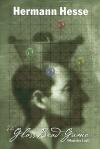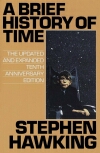Welcome
Stone cold logic.
Derived from the burning minds of ancient men.
A means by which we foretell the future.
A method to analyze past and present.
If you have not yet learned this logic of old,
then you are here to soon.
There is no tool to replace it.
Those without it are only guessing.
Logic makes art of science, and science of art.
Logic is among the subjects which should be taught first.
Logic is the simplest of arithmetic.
Logic is the difference between correct and incorrect
reasoning.
Philosophy is the love of science.
This writing (entitled Philosophy) is an examination of many
subjects:
language, art, science, religion, cosmology, music, government
and economics.
This is an artistic expression of my opinions, not stone cold
logic.
Forward
I begin this writing, as the third millennium dawns. The past
several centuries have seen mankind develop a societal
infrastructure based upon new technologies. I have watched as we
first walked upon the moon and developed the electronic micro
circuit. Before me, the world has become one place through
communication systems.
All this, brought on by our understanding of the laws of nature.
It should be a comfort to know that we are able to perceive these
laws of nature. They do seem to exist (in an abstract sense) as
truth. Generations before have defined them in human terms
(languages) and passed this knowledge on.
I ask that you pass your knowledge, skills, and compassion on as
well. I am not trying to predict the future, but believe the
world is in grave danger and will need the aid of humans to
survive, just as we too need it for our survival.
Perhaps we can move to space for our own survival, but some
(most) will be left to tend the earth. Our population is huge and
displacing the other creatures. We are compassionate in many
respects, yet, are causing great hardship for the life around us
as we claim more of the resources.
I have always been a bit disturbed by the notion that we must
kill living things to live. (I am referring to the plants as well
as meat.) Most ambulatory living things do consume others. Why
has this come to be I have wondered. More, can we correct
it? A goal for food producers would be to synthesize the foods
we need and enjoy and work towards being less a danger to the
other life on Earth.
Introduction
When very young, I was active in the Lutheran church. I took the
word of my elders, and assumed they had a greater wisdom than I.
Still, the lesson of "there is no Santa Claus" had not been
forgotten. (Here I refer to learning that not all that was told
to me AS true, really WAS true.)
Being an alter boy felt like I was on stage, (not
communing with a greater being,) and greatly like I was being
used by the pastor to add a finishing touch to the preformance.
It next became apparent to me that the bible
was not a single work of the Lutheran church, but a collection of
works by another church! Further, that Luther had denounced the
Pope as "antichrist" and vice versa. Still, I found the 'Bible'
to be a very interesting collection of works indeed, and still
'am intrigued by it's stories.
I dropped out to join the Scouts. A knowledge of knots seemed
much more practical than a knowledge of ancient religious
prose. And many years later I still can recall standing atop
Mt. Lena in the Olympics with awe inspired by the panoramic view.
In the following years, I examined other religious points of view
or knowledge. They are seemingly equal in their missing proofs,
and different in fundamental ways. Many no longer have any
followers. Some are, or some have been, bound to the existing
government as one, others almost without any boundary.
The contradictions amazed me, as did the power any of them had
over their members. Add to this, "new" religions, whose creators
claim to commune directly with any number of things, usually
quite invisible to the rest of us.
Religion seems to be man made. And based upon a few assumptions
or possibly visions or interpretation of ancient stories.
Control? Money? Labor? People? Land? Treasures? Buildings? I am
not sure that the religions shouldn't be viewed and treated just
as any other human group is.
Clubs, business, religions, political parties, unions, societies,
governments, all are groups with differing numbers and rules and
powers. 'Might making right', the powers aspect is the topmost
element in rules structure.
The government can be used to control groups within its physical
reach excepting those sheltered by another government. We confuse
things when we have many different governments, each acting as if
its rules were absolute.
We live within a complex mesh of beliefs and rules. Propaganda is
diluted by not being 'singular' in our faster communicating
world. But for an individual who is targeted and isolated as
in some remote regions it is still possible to control opinions.
We are toooo 'many' for each of us to know everyone. We have lost
most of our ancient small tribal unity, in favor of complex
dynamic multiple group memberships. Six billion plus, wow.
Show the children the ancient texts, and explain various beliefs,
but teach them logic so that they may know truth from belief.
The world's people need to reach to a common understanding; that if
there is no consensus, and yet great followings in several contrary
belief systems, then they are likely not being evaluated and choosen
logicaly but based upon emotions.
Religions seems ... but a guess, or, an early premise (actually
many.)
Perhaps a universal conscientiousness is focused at regions of
existence coinciding with the many fold things of reality. "The
universe experiencing itself through its many parts' individual
local awareness." Is God to be found in his own definition as
synonymous with the everything? Is God a subset of all. If it is,
then perhaps we should capitalize All. :)
Respect for the
many possibilities (philosophys/religions/cosmological-views)
seems polite, and good.
Respect for truth seems equally important. And so it is back to
logic. We as individuals, should have access to the many ancient
scripts (and their many interpretations) while not pushing our
young to a single point of view. As adults we may be fair game,
but as for the young student, their 'forced' learning environment
should be free from single sided religious doctrine. I am not
against the teaching of religion in public schools, so long as
the 'class' (curriculum) includes an equal amount of time be
spent on each of the religions, and none is presented as
requiring the participation in any ritual or prayer acts, nor is
any presented as 'truth' or the correct view or religion.
On the other hand, 'logic' should be taught to first year
students.
With so many 'words' to know, language should be the focus of
early years. But with an ordered approach. The simple concepts of
'yes' and 'no' can be taught as abstract mathematical concepts of
binary logic through simple diagrams, and examples, and perhaps a
few physical models of plumbing and switches, and simple two
state systems.
Teach counting to 'one' in binary before counting to 'ten' in
decimal.
The same goes for calculus. It's principles should be taught in the first
grade. Start with the correct vocabulary when teaching reading
and spelling, and include far more terms from the fields of
mathematics and science, beginning with the names of the chemical
elements and processes most basic to understanding such as
integration and differentiation and frequency. If you are
teaching the youngest of children you have a great responsibility
to know calculus and logic and physical sciences so that your
vocabulary be more precise and the children not spend the next
years un-learning and re-learning. Mesh the home, school,
community, and work enviroments more.
|
Links to a few of the books I have read and enjoyed.
The Glass Bead Game
By H. Hesse

Final novel by Hermann Hesse, published in two volumes in 1943 in German as Das Glasperlenspiel, and sometimes translated as Magister Ludi. Set in the 23rd century.
Annapurna
By: Maurice Herzog, Leader of the French Himalayan Expedition.
The First Conquest of an 8000-meter Peak
The Child Buyer
By: John Richard Hersey
Flowers for Algernon
By: Barbara M. Linde
Dune
By: Frank Herbert

The Martian Chronicles
By: Ray Bradbury
The Source
By: James A. Michener

The Rise And Fall of the Olympia Oyster
Foundation
By: Isaac Asimov

Relativity: The Special and the General Theory
By: Albert Einstein
The actual book I read was titled: The Theory of Relativity and the Non-symetric Field.
The link is for the closest match I could find, and I hope is a later edition containing the same material.
I was suprised when I read this. I expected a book culminating in his most famous
equation (E=mc2) and instead found this to be just
one among the many used on every page, expressing his opinions, proofs, and hypothetical
experiments. This book changed my view of the correct way to measure, and forced me to
venture further into mathematics to understand the symbols used (Tensor calculus). Most
amazing to me was how Dr. Einstien simply tossed in the notion that travelers could not
go backward in time by including a coeffecient (x4=&sqroot;-ict to prevent it which had no supporting
proof just his personal opinion. Heavy.
General Chemisty
By Linus Pauling

A superb introductory text. I especially enjoyed
his early chapters for his overview of physics which lays a superb foundation for further study.
108 Injection Molds
By Hans Gastrow

A fascinating book showing solutions to designing injection molds.
The Lord of the Rings
By: J. R. R. Tolkien
Shogun
By: James Clavell
The Key to the Universe: A Report on the New Physics
By: Nigel Calder
A History of Mathematics
By: Victor J. Katz

Harvard Dictionary of Music
By: Willi Apel
This is a treasure of musical information. I found myself jumpinging from one
word to another in a cascade of learning many times.
Handbook of conducting
By: Karl D. Van Hoesen
Handbook of Analytical Design for Wear
My copy came from the Boeing Aerospace Division Library through their surplus
sales. I'm still looking for yours. This book tells how to design things to
exhibit zero-wear.
Design for Manufacturing: A Structured Approach
By: Corrado Poli
If you are interested in inventing and design, you will need an understanding
of processes involved and their relative merits. This is an excellent overview
of the tools and processes you will find in an industrial area. Very practical.
Handbook of Chemistry and Physics
By: David R. Lide

Okay, I must admit, this is not a book. It is a LIBRARY of data
which I have nearly worn out from use. I suggest it everyone, (even
an old worn out copy is better than being without this excellent work.)
A Brief History of Time
By Stephen Hawking
 A small book, and a quick read although it seemed redundant to me at times. I much more
enjoyed attending his lecture on black holes and baby universes while in Seattle.
A small book, and a quick read although it seemed redundant to me at times. I much more
enjoyed attending his lecture on black holes and baby universes while in Seattle.
Classic Guitar Tedchnique Volume I
By: Aaron Shearer

Written by my instructor's instructor, I used it while instructing classic guitar at The Evergreen State College, and at North Thurston High School both. I believe a
person could learn to play the classic guitar by starting with this book and spending
just a half an hour a day for half a year or so.
The Prophet
by Kahlil Gibran

Siddhartha
By H. Hesse

|


 Trillium University. Online free
education.
Trillium University. Online free
education.







 A small book, and a quick read although it seemed redundant to me at times. I much more
enjoyed attending his lecture on black holes and baby universes while in Seattle.
A small book, and a quick read although it seemed redundant to me at times. I much more
enjoyed attending his lecture on black holes and baby universes while in Seattle.





